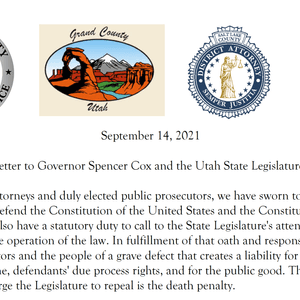
Stephen Oliphant’s recent study on the death penalty’s effect on homicide rates published in Criminology & Public Policy found “no evidence of a deterrent effect attributable to death penalty statutes.” Oliphant first discusses deterrence theory, which “posits that punishment, or the threat of punishment, discourages individuals from committing crime,” and its role in capital punishment discourse, where proponents of the death penalty have argued that the threat of the death penalty discourages homicide, and that abolition (or a halt to the use of the death penalty) would lead to increased murder rates.
The research focused on four states which imposed moratoria on the death penalty — Illinois, New Jersey, Pennsylvania, and Washington — and examined the homicide rates in each state in the years preceding and following the state’s institution of a death penalty moratorium. Compared to predictions based on homicide rates in similar states, none of the four saw an increase in homicides attributable to the moratoria, contrary to the deterrence argument for the death penalty. Illinois, New Jersey, and Washington actually had reduced homicide rates following their moratoria, even controlling for other influencing factors.
While Oliphant cautions that each state’s results might not be generalizable to all other states, he concludes that “policy makers considering death penalty moratoriums should be aware that an analysis of four recent death penalty moratoriums found no evidence to suggest that they led to increases in homicide. Given the gravity of capital punishment and the inability to right wrongful executions, it is critically important that policy makers weigh evidence of the death penalty’s capacity to deter with considerations of equity, justice, and fairness.”
Stephen N. Oliphant, Estimating the effect of death penalty moratoriums on homicide rates using the synthetic control method, Criminology & Public Policy, 1 – 30 (2022).
Deterrence
Sep 15, 2021


